What is an indicator of a fake ID?
What is an Indicator of a Fake ID?
In today's world, spotting a fake ID has become increasingly important for various industries, from bars and nightclubs to airports and financial institutions. But what exactly are the indicators of a fake ID? Knowing the answer to this question can help businesses and individuals avoid legal repercussions and ensure safety. In this article, we will discuss the major signs of a fake ID, how to identify them, and key tips for detecting fraudulent identification.
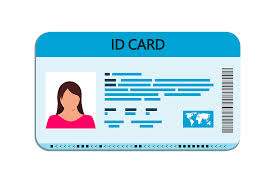
1. Physical Appearance: The First Indicator of a Fake ID
When analyzing an ID, the physical appearance is one of the most obvious indicators that can suggest its legitimacy or lack thereof. A fake ID may have:
- Blurry images or fonts: Fake IDs often have low-quality images and fonts that are hard to read.
- Incorrect size or shape: Authentic IDs usually follow a specific format, whereas counterfeit IDs may be poorly cut or slightly off in size.
- Laminate issues: Many real IDs use specialized laminates that are difficult to replicate. If the laminate is peeling or looks unusual, it could be a fake.
2. Holograms and UV Markings: Advanced Security Features
Another clear indicator of a fake ID is the absence or poor imitation of security features such as holograms and ultraviolet (UV) markings. Real IDs often incorporate these to prevent forgery. Signs that these features may be fake include:
- Misplaced or missing holograms: Most legitimate IDs have holograms that are visible under specific lighting conditions.
- No UV features: Government-issued IDs typically contain UV features that are visible under black light. A lack of these markings or incorrect placement can point to a counterfeit ID.
3. Mismatched Information: A Key Indicator of a Fake ID
One of the easiest ways to identify a fake ID is by checking if the information matches. A fraudulent ID might have:
- Inconsistent information: Look out for mismatched dates, fonts, or other details that don't align with the person's actual records.
- Spelling errors: Any spelling mistake in a person’s name, address, or ID details is a significant red flag.
4. Barcode Scanning: Verifying Digital Data
In today’s digital age, scanning the barcode on an ID can be a reliable way to spot a fake. Many fake IDs might have a barcode, but the data it stores often doesn’t match the printed information on the front. This is a strong indicator of a fake ID. A scan can reveal mismatched dates of birth, incorrect license numbers, or nonexistent addresses.
5. Behavioral Signs of the User
Sometimes, the way a person acts can be just as telling as the physical ID itself. Some behavioral signs that may indicate the use of a fake ID include:
- Nervousness or hesitation when asked questions about their identity.
- Lack of eye contact or inconsistent answers when questioned about details on the ID.
- Reluctance to hand over the ID for closer inspection.
6. Other Tips for Spotting a Fake ID
While the above are major indicators, there are also smaller signs of a fake ID that you should not overlook. These may include:
- Font inconsistencies: Government-issued IDs typically have uniform fonts. If you notice varying font styles or sizes, this could be a red flag.
- Thickness or weight: A genuine ID will often feel sturdier than a counterfeit one. Fake IDs are sometimes made of cheaper, lighter materials.
- Edge quality: Real IDs tend to have smooth, even edges, whereas a fake one may have rough or uneven edges due to poor cutting.
7. Why It's Important to Detect Fake IDs
Understanding the indicators of a fake ID is crucial for businesses, especially those in the service industry, as they are often held legally responsible for serving minors. By knowing the signs, employees can prevent underage drinking, fraud, and illegal activity. It also helps protect businesses from hefty fines, lawsuits, and potential loss of licenses.
8. Conclusion
Detecting a fake ID requires a combination of attention to detail, familiarity with common signs of fake IDs, and knowledge of security features like holograms and barcodes. By understanding these indicators, you can help prevent fraud and ensure compliance with legal requirements. Whether you're working in hospitality, retail, or any sector that handles identification, it's essential to stay informed about how to spot a fake ID.
Related Keywords:
- Signs of a fake ID
- How to spot a fake ID
- Fake ID detection methods
- Holograms on real IDs
- Spotting a fraudulent ID
- Fake ID vs real ID
- Common characteristics of fake IDs
 scannable Fake Canada-Quebec D
scannable Fake Canada-Quebec D
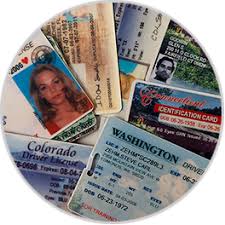 scannable Fake EmploymentAutho
scannable Fake EmploymentAutho
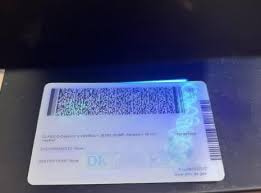 scannable Fake Texas DL
scannable Fake Texas DL
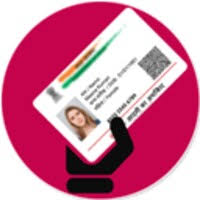 scannable Fake Washington DL
scannable Fake Washington DL
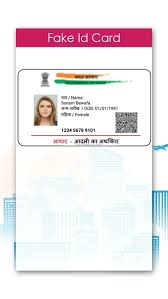 scannable Fake Virginia DL
scannable Fake Virginia DL
 scannable Fake Utah DL
scannable Fake Utah DL
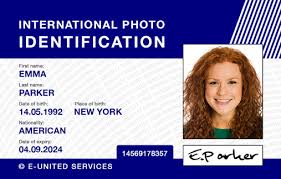 scannable Fake South Carolina
scannable Fake South Carolina
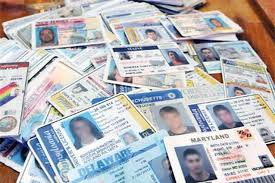 scannable Fake Missouri DL
scannable Fake Missouri DL
